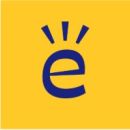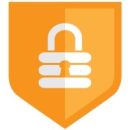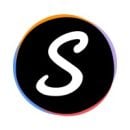Sam was skeptical of what his new online friends told him. Was Islam really a violent religion? Were "feminazis" really eroding the family?
A sensitive middle-schooler and the protagonist of a recent Washingtonian story, he found himself caught up in a slurry of bigoted and misogynistic views that litter the online forums Reddit and 4chan.
Googling those views to learn more about them only made things worse by overwhelming him with information that confirmed the extremist rhetoric rather than correcting or contextualizing it.
Unbeknownst to Sam, Google's algorithm prioritizes user engagement and retention, which means it often acts more as echo chamber than fact checker. The same goes for other search engines.
Of course, the internet can be a great learning resource if you know where to look — and if you're aware that just because something seems educational or factual doesn't mean it actually is.
That's where bona fide educational technology, which relies heavily on the internet, has a distinct advantage: It's created specifically to educate. Often, it's invented by former teachers who want to help young kids with developing brains (like Sam) think more critically.
Currently valued at around $8 billion (in the U.S.), the edtech industry has in recent years benefitted from a major influx of investment capital — a reported $1.45 billion in 2018 alone. We’ve gathered some examples of innovative edtech applications that help teachers and students alike.
Edtech Companies to Know
- Teachable
- BrainPOP
- Mainstay
- Peaksware
- TPT
- CourseHero
- Turnitin
- Edmodo
Edtech Companies
Piazza—Italian for “public square”—is a live Q&A platform where stumped students collaborate to overcome problems they're having with STEM field problem sets. Some might call it a discussion board, but critics have noted that discussion boards often foster stilted, mandatory conversation. Piazza does the opposite. And its notifications encourage quick replies. According to the New York Times, the average question on Piazza is answered within 14 minutes. And though it’s primarily used for student collaboration, the platform lets teachers endorse correct student responses.
Britebound offers multiple learning platforms for students in middle and high school to learn about industries and careers that might link with their passions. The company aims to help young people get equitable access to insights on postsecondary pathways through free digital experiences.
New Visions for Public Schools works with New York schools that serve thousands of middle and high students, providing educators with tools and support to help them deliver quality learning experiences. It’s invested heavily in college and career preparation programming, and New Visions has published a range of free open-source instructional resources that can be tailored to meet different classroom needs across subjects like math and social studies.
Teachers can often sense plagiarism, but TurnItIn confirms gut feelings with hard data. The company’s popular digital plagiarism checker lets teachers compare student work with previous writings contained in a massive multi-lingual database of student papers, published academic work and years' worth of web content. Since its founding in 1998, TurnItIn’s search algorithm has scanned more than 70 billion web pages, many of which have since been archived.)
Livescribe specializes in Smartpens, high-tech styluses that digitize handwriting into PDFs, transform handwritten documents scrawled on special "dot paper" (printable at home) into editable text files and even record audio. The pens link to a mobile and desktop app through which audio and written notes are blended into one multimedia document. Intended for lecture classes and interview situations, Livescribe can also benefit students with learning disabilities.
Through Academia, researchers can share their work and discover other research papers that align with their interests. The online platform has approximately 269 million members representing academic disciplines like history, economics, chemistry, computer science, literature and psychology.
InStride provides workforce education solutions. It collaborates with businesses on offering learning opportunities that can help them improve employee engagement, bolster their diversity and inclusion efforts and attract quality job candidates. InStride has thousands of adult learners participating in its educational programs, which include technical certifications, associate degree tracks and courses for learning English.
Edmodo is a versatile digital portal through which teachers can perform every aspect of their job, including taking attendance, reading written assignments and auto-grading quizzes. In industry terms, Edmodo’s platform is what's known as a “learning management system,” which means it's intended to replace actual file cabinets stuffed with classroom paperwork. In addition, its customizable and teacher-developed interface has a networking component that lets students, parents and school employees connect and communicate securely.
BrainPOP makes edtech software that offers “concept mapping” tools for K-12 students. By breaking complex or abstract concepts into concrete, real-world elements, it gives kids the opportunity to fully grasp the critical fundamentals of, for example, three-dimensional science, as a means of augmenting the work they do in the classroom with their teachers. BrainPOP is widely used by school districts as well as individual families.
Multiverse helps people start and upskill their tech careers. The company’s apprenticeship matching program has trained over 16,000 people since its founding in 2016, teaching in-demand tech and data skills to keep the global workforce up to speed with how technology and AI are changing the way the world works.
ReUp Education says its mission relies on “empowering all adults to thrive in higher education.” The company partners with schools and systems to expand educational access for adult learners, providing them with personalized support through one-on-one interactions and other resources meant to help them get to graduation day.
Course Hero offers software tools to complement what students receive from their textbooks and instructors in a variety of challenging subjects. By offering materials and resources like lecture notes, study guides and practice exams along with tutoring from subject matter experts and AI-powered homework assistance, the Course Hero platform is designed to support student success.
Dreambox Learning’s K-8 math curriculum relies on adaptive technology with game-like interfaces that responds to students’ choices in real time by providing corrective drills in response to mistakes and moving on to new concepts when students display mastery of a particular topic. By making assessment an integral part of the learning process, the company aims to personalize the educational experience and reduce the need for testing.
Businesses use Skillsoft’s technology to provide their employees with opportunities to develop new skills and strengthen the ones they already have. For example, Skillsoft offers leadership training solutions that cover areas ranging from ethics to generative AI so businesses can equip up-and-coming leaders with tools and skills that support their success.
Examity's online proctoring services verify that students who take exams remotely do so honestly. The company offers a trio of tools to ensure test-taking integrity: digital identification, auto-proctoring and live proctoring. The digital identification process confirms identities through fingerprints and voice biometrics, among other methods. During auto-proctored exams, machine learning algorithms monitor students through the webcams and microphones on their personal computers and flags suspicious behavior. Security is even tighter in live-proctored exams during which test-takers are monitored by college-educated proctors who've completed two months of training on the workings of Examity's interface. Types of tests for which the company's platform can be used include standardized testing, college finals and certification exams. And there's 24/7 tech support via phone or online chat.
Nonfiction readings on the Newsela digital platform are fluid, meaning they're readable at each student's individual reading level. Learners who are just learning English can translate complex stories into simple terms. More fluent speakers can explore the full technical vocabulary of a Scientific American deep-dive or an Al Jazeera feature — two of the many reputable sources from which Newsela’s massive library of nonfiction texts are drawn. Spanning topics from American history to space exploration, the readings often touch on social justice issues. More generally, they aim to strike a chord with teenagers and help ignite a lifelong love of reading.
Snap! Mobile offers a platform designed to make fundraising safe and efficient for schools, athletic teams and extracurricular groups. Its technology’s features include dashboards for real-time transparency and built-in communication tools. Through its digital-first approach, Snap! has helped thousands of groups collectively raise more than $1 billion.
Peaksware is a software company that operates a portfolio of brands and tools for optimizing individual performance. For example, its MakeMusic brand is an edtech product for music education, which provides a tech-based program for teaching, learning and composing music based on the Deliberate Practice training model. This model asks learners and educators to set targeted goals, practice toward them and receive immediate feedback, thus shaping their pedagogical experience.
Pluralsight is an online training company that offers skills consulting and video courses for businesses and teams. Employees engage in a combination of remote and on-site work from its offices in the United States, India and Ireland.
Swivl’s signature video tool is less a camera and more an “intelligent assistant” — in effect, a second set of eyes in the classroom. The robot's smart camera, flanked by multiple microphones, is more autonomous than typical video cameras and has a built-in sense of when and how to swivel. In addition to observing students to get a sense of comprehension levels and classroom dynamics, Swivl video can help educators hone their teaching style.
Remind solves a perennial problem of education: parent-teacher communication. Things like permission slips constantly get lost in the murky depths of kids’ backpacks, but Remind shifts key paperwork and deadlines to the digital realm where they’re harder to lose or overlook. The app allows teachers and school administrators to contact parents and kids on via phone using the equivalent of text messaging. And it works on all phones, not just smartphones. Unlike texting, however, it masks everyone’s phone number and has built-in translation tools.
Companies turn to 360Learning to establish employee training and upskilling programs with the help of artificial intelligence. For example, the company’s AI-powered skills pulse tool assesses employees’ skills and maintains accurate data that helps businesses identify and address gaps. 360Learning’s technology serves more than 2,300 businesses.
When TPT started in 2006, it was a word-of-mouth marketplace where teachers could share and sell the resources they’d created. Today the platform offers custom digital tools and more than 5 million educational resources. With a recommendation system driven by algorithmic technology, the platform hosts a community of more than 7 million educators.
Edtech isn't just for young people. In Thinkful's virtual classrooms, instructors train adults for new careers in full-stack programming and data analytics. Alumni of Thinkful's courses have landed jobs at tech giants like Google and Amazon, and the team has such faith in their program that students are promised a tuition refund if they can't find a job within six months of graduation. Central to Thinkful's approach is one-on-one mentorship. Each student receives focused, face-to-face attention via video chat from a professional in the field they're studying. When students leave Thinkful's bootcamp for the job market, the company also offers them six months of career services, including interview training.
Mainstay makes a student engagement platform that is designed to support academic success and retention through digital communication. Using conversational AI and features like homework reminders through a chatbot, the software is research-proven to improve class performance and was awarded the EdTech Digest award for “Best Artificial Intelligence Solution.” The software is also built with a protocol for escalating communications to a human support resource like a teacher or admissions counselor when appropriate.
Teachable is a course content marketplace site where course creators can design, market and sell their digital classes and educational content. It also functions as a learning management system for instructors, who can use the Teachable interface as a storefront for their classes, where they can include materials like videos, quizzes and lecture notes.
Blueprint Test Prep is a test-prep provider for pre-law and healthcare students. Blueprint begins by creating a personalized study schedule tailored to each learner’s life and goals using an advanced algorithm. Later, Blueprint analyzes students’ mistakes and study patterns to pinpoint specific areas of improvement, helping them to maximize their performance.
Labster makes the lab experience accessible to more STEM students with interactive lab simulations where equipment cost is no object and students can experiment with microscopes, pH meters and titration equipment to their hearts’ content. To prepare homogenized milk, for example, students use the cursor to pick up objects and adjust their microscope settings. Labster’s library has almost 100 lab simulations that cover a range of scientific subjects, including chemistry, physics and biology. In partnership with Google, Labster also offers an array of more immersive virtual reality biology lab simulations.
Stepful has end-to-end healthcare apprenticeship and upskilling programs for medical administrators, surgical techs, medical assistants and pharmacy techs. It aims to fill the gaps that homegrown upskilling initiatives, self-paced online learning and community colleges don’t. The company’s digital-first cohorts are made to last months, rather than years.
When chronically ill kids miss long stretches of school, they also miss out on the social interaction that schooling provides. No Isolation, a Norwegian startup, wants to change that. Its bright-white “telepresence robot,” shaped like a miniature head and shoulders, acts as a stand-in for sick kids by seeing, hearing, and even speaking on their behalf. Said 17-year-old AV1 user named Jade, who often has to stay home for health reasons, “It feels like I’ve been released from prison."





























